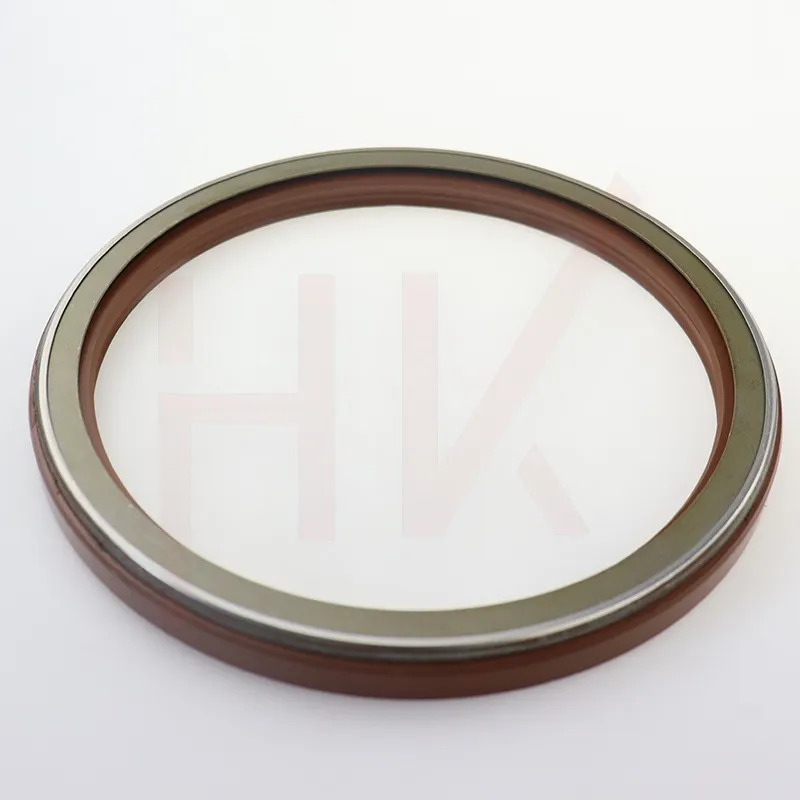സെപ് . 29, 2024 21:35 Back to list
Exploring the Benefits of Metal Oil Seals in Mechanical Applications
Understanding Metal Oil Seals A Comprehensive Overview
Metal oil seals are crucial components in various mechanical systems, designed to prevent the leakage of lubricants and the ingress of contaminants. Their importance in maintaining the efficiency and longevity of machinery cannot be overstated. Understanding the structure, function, and applications of metal oil seals is essential for anyone involved in mechanical engineering, automotive repair, or manufacturing processes.
What Are Metal Oil Seals?
Metal oil seals, often referred to as metal-to-rubber seals, consist of a metal outer casing that encases a rubber sealing element. This combination provides strong resistance against wear, temperature fluctuations, and harsh environmental conditions. The metal outer casing enhances the seal's structural integrity, while the rubber component offers excellent flexibility and adaptability to the shaft it encases.
The primary function of these seals is to contain lubricants—like oil—within the machinery, reducing friction and wear between moving parts. They also prevent external contaminants, such as dirt, moisture, and dust, from entering critical areas. This dual functionality protects both the machinery and the lubricants, ensuring optimal performance.
Types of Metal Oil Seals
Metal oil seals come in various types, each suited for specific applications. The most common types include
1. Single-lip seals These seals feature a single rubber lip that provides effective sealing against fluids. They are widely used in rotating shafts and are known for their simplicity and reliability.
2. Double-lip seals Equipped with two rubber lips, these seals provide an additional layer of protection against contamination. Their design makes them ideal for applications requiring higher resistance to leakage.
3. Spring-loaded seals These seals incorporate a spring mechanism that helps maintain the necessary sealing pressure against the rotating shaft, compensating for potential wear over time. This type is especially beneficial in high-speed applications.
metal oil seal

4. Constant contact seals Designed to maintain continuous contact with the surface, these seals are effective in preventing lubricant loss and contamination ingress, making them suitable for demanding environments.
Applications of Metal Oil Seals
Metal oil seals are ubiquitous in various industries due to their versatility and reliability. They are commonly used in
- Automotive engines Here, they prevent oil leaks from critical components like the crankshaft and camshaft, essential for maintaining engine performance and efficiency.
- Industrial machinery In manufacturing equipment, metal oil seals help protect bearings and other rotating components from dirt and debris, extending service life and reducing maintenance costs.
- Aerospace In aviation applications, the reliability and performance of seals are paramount. Metal oil seals are engineered to withstand extreme environmental conditions, ensuring that aircraft systems operate safely and efficiently.
- Marine environments Seals used in boats and ships are designed to resist saltwater corrosion, protecting propulsion systems and reducing the risk of oil leaks into the ocean.
Advantages of Metal Oil Seals
The inherent benefits of metal oil seals make them an indispensable choice in many applications. They boast high resistance to temperature extremes, chemical attack, and physical wear, ensuring longevity under challenging operational conditions. Moreover, their ability to form a tight seal prevents lubricant leaks, which means less frequent maintenance and lower operational costs.
In summary, metal oil seals play a vital role in the functionality and durability of various machines and engines. By providing effective sealing solutions, they contribute significantly to the efficiency and reliability of modern technology. Understanding their types, applications, and advantages is essential for anyone involved in the design, repair, or maintenance of mechanical systems. As industries continue to evolve, so too will the materials and designs of metal oil seals, ensuring they remain relevant in the face of new challenges.
-
TCN Oil Seal Metal Ring Reinforcement for Heavy Machinery
NewsJul.25,2025
-
Rotary Lip Seal Spring-Loaded Design for High-Speed Applications
NewsJul.25,2025
-
Hydraulic Cylinder Seals Polyurethane Material for High-Impact Jobs
NewsJul.25,2025
-
High Pressure Oil Seal Polyurethane Coating Wear Resistance
NewsJul.25,2025
-
Dust Proof Seal Double Lip Design for Construction Equipment
NewsJul.25,2025
-
Hub Seal Polyurethane Wear Resistance in Agricultural Vehicles
NewsJul.25,2025
-
The Trans-formative Journey of Wheel Hub Oil Seals
NewsJun.06,2025
Products categories
















